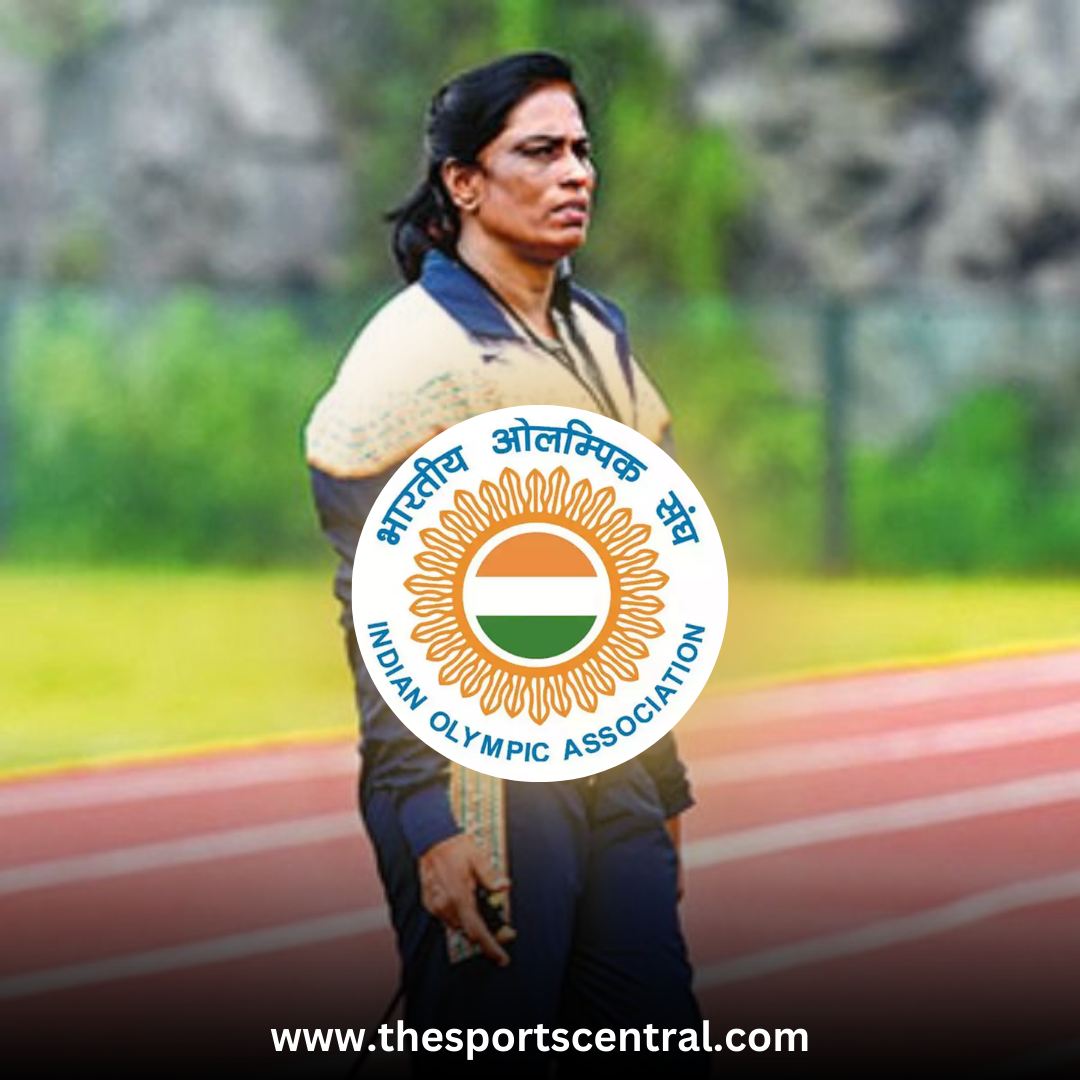The president of the Indian Olympic Association (IOA), PT Usha, has raised concerns regarding the proposed Sports Bill. She cautioned that the draft, in its current form, could lead to sanctions from the International Olympic Committee (IOC). Usha’s warning comes in light of potential conflicts between the bill’s provisions and international sports governance norms.
Meeting Between Sports Ministry and Stakeholders
On Thursday, India’s Sports Minister, Dr. Mansukh Mandaviya, met with representatives from various National Sports Federations (NSFs) and the IOA. The primary objective was to discuss the draft Sports Bill with key stakeholders. PT Usha, who was present at the meeting, voiced her concerns through a written submission.
In her submission, Usha highlighted that certain provisions in the bill, particularly the formation of a Sports Regulatory Body, may threaten the autonomy of sports federations. Such provisions, she noted, could be perceived by international federations (IFs) as excessive government interference.
Concerns Over Autonomy and IOC Sanctions
The crux of Usha’s concern lies in the creation of a Sports Regulatory Authority. According to the draft, this body would be granted extensive powers to control and regulate the functioning of NSFs. Usha warned that such powers could be seen as infringing upon the independence of the IOA and NSFs.
“This could lead to a direct conflict between the government and international sports governance bodies,” Usha wrote. She reminded the sports ministry that the IOC has previously suspended several National Olympic Committees (NOCs) for what it deemed excessive government interference. A suspension of this nature could have far-reaching consequences for Indian sports on the international stage.
If the IOC perceives the proposed regulatory body as a threat to the autonomy of the IOA, it could question India’s adherence to the Olympic Charter. Usha warned that such a situation could lead to India’s suspension from the Olympic Games, severely damaging the nation’s sporting reputation.
Impact of a Suspension on Indian Sports
The possibility of sanctions from the IOC is a serious concern for the future of Indian sports. A suspension would bar Indian athletes from participating in the Olympic Games, the highest stage of international competition. This could undermine years of progress and investment in sports development across the country.
Beyond participation in the Olympics, a suspension would damage India’s international standing as a sporting nation. It would hinder efforts to build a global reputation and may lead to a loss of opportunities to host prestigious international events.
Usha’s warning serves as a reminder that maintaining harmony between national and international sports governance is essential. Any perception of government overreach could trigger sanctions that affect not only athletes but also India’s sports ecosystem as a whole.
Clarity on the Role of State Olympic Associations
In her submission, Usha also pointed out another significant concern regarding the role of State Olympic Associations (SOAs). She argued that the bill’s lack of clarity on SOAs’ role could harm the decentralization of sports governance in India. The absence of a defined role for SOAs could weaken the framework for grassroots sports development, especially in regions where local associations play a pivotal role in nurturing talent.
“The bill’s silence on their role could undermine the decentralization of sports governance,” Usha wrote. SOAs are crucial for organizing state-level sports events and fostering regional talent. By not clearly defining their responsibilities, the bill risks overlooking a key component of sports governance in India.
Grassroots Development and the Role of SOAs
State Olympic Associations act as vital links between grassroots sports development and national representation. They are responsible for discovering and nurturing talent at the regional level. In many cases, athletes from smaller towns and villages rely on SOAs to gain recognition at the national level.
Without a well-defined role for SOAs, the bill may miss an opportunity to strengthen regional sports infrastructure. This could prevent the involvement of local bodies that are essential for spotting talent early and providing them with opportunities to develop. Usha emphasized that SOAs play a key role in decentralizing sports governance, which is vital for India’s long-term success in sports.
Potential for Conflict Between National and International Norms
Usha’s concerns about the Sports Bill highlight a broader issue: the balance between national regulations and international sports governance standards. The IOC, like other international federations, places a strong emphasis on the autonomy of sports bodies. Any interference from national governments in the functioning of these bodies is viewed as a violation of the Olympic Charter.
The formation of a Sports Regulatory Authority, as proposed in the bill, risks being seen as such interference. The IOC’s previous actions against NOCs for similar issues suggest that this is a real risk. The challenge for India’s sports governance is to find a way to regulate and promote sports at the national level without infringing on the autonomy required by international standards.
Need for Dialogue and Amendments
To avoid potential conflicts, it is clear that more dialogue is needed between the government, the IOA, and the NSFs. Usha’s submission underscores the importance of listening to stakeholders in the sports community before finalizing the bill. Amendments may be necessary to address concerns over autonomy and ensure alignment with international norms.
By taking a collaborative approach, the government can avoid unintended consequences that may arise from the current draft. The goal should be to promote transparency, fairness, and good governance in Indian sports while respecting the principles laid out by global sports authorities.
The Importance of Autonomy in Sports Governance
One of the key principles of the Olympic Charter is that sports organizations must operate free from undue influence from national governments. Autonomy ensures that sports are governed fairly and independently, without political or governmental interference. This autonomy allows sports bodies to make decisions based on the best interests of athletes and the development of the sport.
The proposed Sports Regulatory Authority, with its extensive powers, risks infringing on this autonomy. If international federations perceive this as overreach, it could lead to punitive actions. For Indian sports to thrive, maintaining the balance between national regulation and international autonomy is critical.
Path Forward for the Sports Bill
The Sports Bill, in its current form, has the potential to bring about much-needed reforms in Indian sports governance. However, it also raises concerns about the potential for government interference. PT Usha’s warnings should be taken seriously by policymakers.
To move forward, the government must carefully consider the feedback from the IOA and NSFs. Amendments may be necessary to ensure that the proposed regulatory framework promotes good governance without compromising the autonomy of sports bodies. A well-crafted bill could enhance transparency, promote fairness, and strengthen the development of sports in India without risking sanctions from the IOC.
Conclusion: Striking a Balance
PT Usha’s caution regarding the draft Sports Bill serves as a reminder that sports governance is a delicate balance between regulation and autonomy. While reforms are necessary to improve the functioning of NSFs and the IOA, any changes must align with international standards to avoid sanctions from bodies like the IOC.
The role of State Olympic Associations must also be clearly defined to support grassroots sports development across India. Local representation and regional talent development are critical for the future of Indian sports, and the bill must reflect this reality.
Ultimately, India’s sports governance must prioritize both national interests and global standards. By fostering dialogue and addressing concerns, the Sports Bill can become a positive force for change, ensuring the growth of sports in India while maintaining harmony with international sports governance norms.










